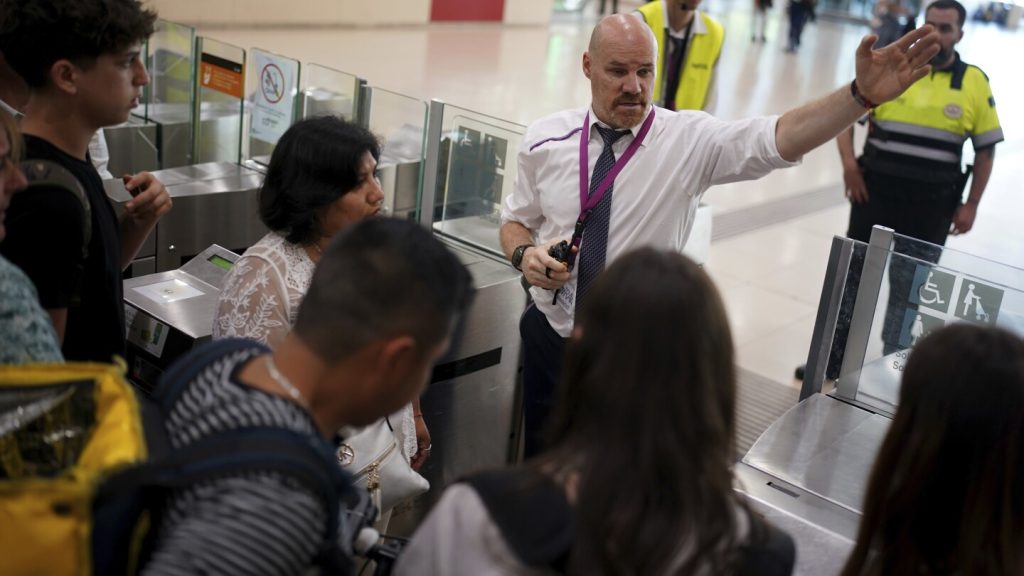The commuter rail service in Barcelona and northeastern Spain has experienced significant disruptions due to the theft of copper cables from a train installation. Thousands of commuters were left stranded at train stations in and around Barcelona as trains on several commuter lines were unable to operate. The theft occurred at a station in Montcada, just north of Barcelona, leading to fires in the cables of the signaling system. The incident, which occurred at around 4 a.m. local time, had a serious impact on the local train service, affecting all rail lines. This theft is just one example of the ongoing issues faced by Catalonia’s commuter rail service, which often experiences delays due to similar acts of theft.
The disruption to the local transport system came at a particularly inconvenient time, as more than 5.7 million voters were eligible to participate in a regional election in Catalonia. The timing of the theft added to the frustration of commuters who were already facing delays and cancellations. The theft of electrical cabling not only caused fires in the signaling system cables but also resulted in a complete halt in train operations on several commuter lines. This highlights the vulnerability of the rail infrastructure to such criminal acts, which can have wide-reaching consequences for both commuters and the overall transport system.
Spain’s state-owned railway authority, ADIF, issued a statement acknowledging the severity of the impact caused by the theft of the copper cables. The incident at the station in Montcada was described as serious, with the fires in the signaling system cables causing major disruptions to the local train service. The authorities worked to address the situation and restore normal operations, but the incident serves as a reminder of the challenges faced by the rail service in maintaining its infrastructure and ensuring uninterrupted service for commuters. Efforts to prevent future thefts and improve security measures may be necessary to avoid similar disruptions in the future.
Catalonia’s commuter rail service has faced regular delays and disruptions, with some attributed to acts of theft targeting the infrastructure. The theft of copper cables from a train installation is a recurring issue that impacts the reliability and efficiency of the rail service in the region. The consequences of such thefts extend beyond the inconvenience to commuters, affecting the overall functioning of the transport system. The incident in Montcada highlights the need for increased vigilance and security measures to protect the rail infrastructure and prevent further disruptions from occurring. Addressing the root causes of these thefts and implementing effective strategies to deter criminal activities can help ensure the smooth operation of the commuter rail service in Catalonia.
The theft of copper cables from a train installation in Catalonia has drawn attention to the vulnerability of the rail infrastructure to criminal acts and the impact on commuter services. The incident in Montcada resulted in fires in the signaling system cables, causing widespread disruptions to the local train service. Spain’s state-owned railway authority, ADIF, worked to address the situation and minimize the impact on commuters, but the incident underscored the challenges faced by the rail service in maintaining its infrastructure. Efforts to enhance security measures and prevent future thefts are essential to safeguard the reliability and efficiency of the commuter rail service in Catalonia. By addressing the root causes of these thefts and implementing preventative measures, authorities can work towards ensuring uninterrupted service for commuters and improving the overall functioning of the transport system.


